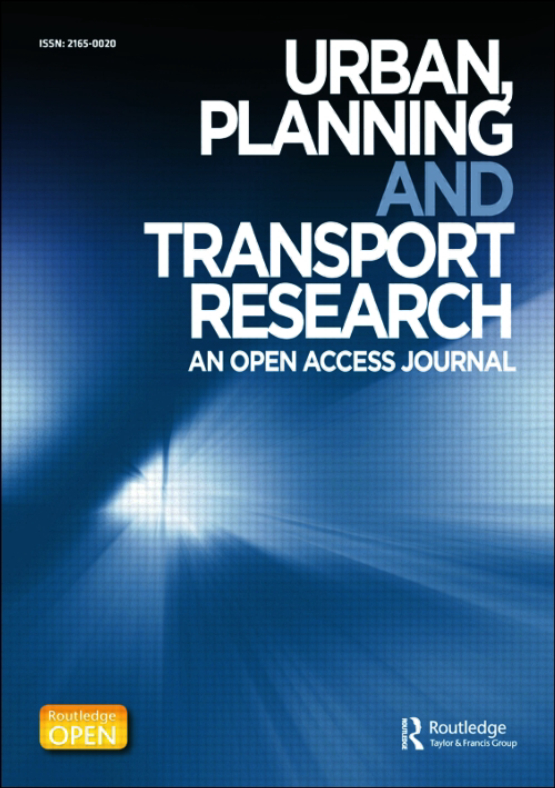Submit a Manuscript to the Journal
Urban, Planning and Transport Research
For a Special Issue on
Green transition towards new urban futures: perspectives, impacts and challenges for the cities
Abstract deadline
21 April 2024
Manuscript deadline
27 October 2024

Special Issue Editor(s)
Vasco Barbosa,
University Institute Polytechnic of Viana do Castelo, Portugal. Faculty of Humanities, University of Joahannesburg, South Africa.
[email protected]
Rubén Lois González,
Faculty of Geography and History, University of Santiago de Compostela, Spain.
[email protected]
Miguel Pazos Oton,
Faculty of Geography and History, University of Santiago de Compostela, Spain.
[email protected]
Green transition towards new urban futures: perspectives, impacts and challenges for the cities
This topic is relevant since it is associated with the possibility of generating new forms of human behaviour in cities due to a global change intended to create more awareness of urban space and cities as spatial resources and infrastructures. These future changes, related to urban or regional space, the urban environment and its landscapes, mobility or socio-spatial inequalities, thus become new development axes in increasingly urban populations.
In this context, climate change is included, which must be understood as a driver of urban development due to the new opportunities and perspectives it can generate. Furthermore, a new generation of public policies regarding the legal instruments of planning and territorial ordering that have arrived require innovative, fair and sustainable visions.
Therefore, knowing new futures and their socio-urban impacts supported strengthening urban resilience in the face of the existing and evident climate crisis.
Looking to Publish your Research?
Find out how to publish your research open access with Taylor & Francis Group.
Choose open accessSubmission Instructions
The research topics are society and space on urban and regional scales to understand how these interact in new futures. Therefore, based on qualitative and quantitative studies, territorial planning as a development instrument is critical.
Thus, subtopics such as spatial planning, urban mobility, green infrastructure and urban landscape, new infrastructure, urban resilience, and climate change are welcome in this call.
In the framework of new urban futures, the following questions can be point out:
- What will be the new urban future?
- What spatial impacts are expected to improve quality of life?
- How is climate change introduced, applied and developed in urban and territorial planning?
The aim is to learn about studies, whether practical or theoretical, related to these new urban futures, therefore case studies, original research articles and reviews are welcome.
The abstract should have no more than 350 words.